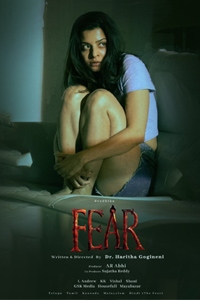
We always trusted but only two directors to come up with thematic variety unfailingly every time - SS Rajamouli and Shekar Kammula. By parodying Happy Days, the latter loses our trust. Period.
In his interview to IndiaGlitz, Kammula rightly described the so-called blockbusters as nothing more than rehashes of the old movies. For the first time in his illustrious career, he has doled out a sickening repetition in the name of revisiting the crumbling trend of jollifying in the neighbourhood. What is the Gold Phase community VS B-Phase community element about if not the Model College guys vs `cheap' Government College guys element in Tammudu? Of course, even a child can find a number of similarities between Happy Days and this one. He may proudly claim that he doesn't over-sentimentalise, but if the tension is not allowed to sustain itself, it tends to look unrealistic.
Srinu (Abhijit) comes to Hyderabad along with his two sisters when his mother (Amala) asks him to relocate there for a year, without telling them the reason. As soon as he sets foot in the township's B-Phase, he starts making friends by winning a cricket match against Gold Phase's rich guys. Together with Nagaraj (Sudhakar) and Kaushik, Srinu runs into the rich guys provoked. Quick note: The ragging scenes are replaced by gags like this.
In real life when rich girls fall for you, life becomes beautiful. Here, rich girls fall for our heroes because life is supposedly beautiful. Thus, Paddu (Shagun) and Paru (Shriya) are there to lend the romantic touch, ever with their guys in happiness and sadness.
But when middle class dogs revolt against capitalist pigs, will that not lead to trouble? It does and this is how the two rival teams slug it out. One brings dogs to the B-Phase turf, the other wants to outshine their rivals in a beauty contest or Ganesh Chaturthi festival. Such juvenile pranks would look alright in a college campus movie, but in a film like this they look stale.
When the rich guys try to get the middle class guys locked up in the jail, Illusion Madam (Anjala Zaveri as Maya) walks in to save them. Since life is invariably beautiful, she later lends financial support to help Nagaraj grow in life!
When Srinu's relative marries the sister of a rich Gold Phase guy, the latter promises to avenge. Kammula seeks to tell a message through the events that happen in their lives (because of the rich guy's ploys), but it doesn't become clear anywhere.
Kaushik is in love with a wannabe Miss India (Shriya) and the track is sans any emotions. The one love track that touches is that of Nagaraj and his sweetheart (Zara as Lakshmi), because it is the only story that the director treats in a realistic manner.
Watch how Shriya plants a kiss on his cheeks when death stares in the plane, and you will shudder to think of it again.
There is no need to kiss a goodbye to intensity and sensible conflict in the name of feel-good entertainment. Sans a plot, LIB packs a number of scenes that never happen in real life. Do innocent and good-hearted main leads get rivals who always behave like a bunch of jokers? None of us will miss the colony life, for there never was such a colony on Planet Earth.
I was stunned at the appalling BG score in some scenes. Since Mickey J Meyer knew that the title was LIB, he never stopped that soothing music even in the intensely emotional and painful scenes! Life may be very beautiful, but why don't you let the audience understand that some phases in the characters' life are painful? Mickey, otherwise, does a good job.
Technically, Vijay C Kumar's cinematography and Marthand K Venkatesh's editing, not to forget the art work, were of good quality.
All the newcomers fitted the bill but it is Sudhakar (who got the dialogue delivery and screen presence alright) who stands out. Shagun is unpretentious, while Zara lacks the oomph of a main character.
Amala pulls it off with grace, while Shriya looks beautiful in the sarees. The latter doesn't get to act though. The hero's two sisters do a fine job, especially in the emotional scenes.
Two scenes will be universally liked by all though: The scene where the children break down when they come to know about Amala's health condition. And the last scene where in the child artist gives a speech on her mother.
Kammula's pen was never so bland (read dialogues). All the characters are light-hearted and talk like grown-up children. Can he think of achieving feel-goodness through emotions that are not just superficial?
The sad failure of Andala Rakshasi proved that people these days are not tolerant of what they think as `copying.' At a time like this, Kammula has recreated a campus film (although made by him) from the very recent history and set the story in a colony. Will he concoct a solidarity story of some guys who live in the army camp (or even the battlefield) the next time? (Title suggestion: Life Is Bold And Beautiful).
Bottomline: If girls and friends are available 24/7 (within a range of a few centimeters!), life would be beautiful for anyone. Imagine a beautiful life where in a girl hundred times richer than you falls in love with you. Life is always beautiful for Kammula's characters but for the rest of us, there is the beautiful Anjala Zaveri. Don]t miss her.
Released on: 14th Sep, 2012
Rating: 0 / 5.0
Showcase your talent to millions!!
Telugu Movie Reviews
 Vidudala Part-2
Vidudala Part-2
 UI
UI
 Bachhala Malli
Bachhala Malli
 Fear
Fear
 Pushpa 2: The Rule
Pushpa 2: The Rule
 Devaki Nandana Vasudeva
Devaki Nandana Vasudeva




Comments